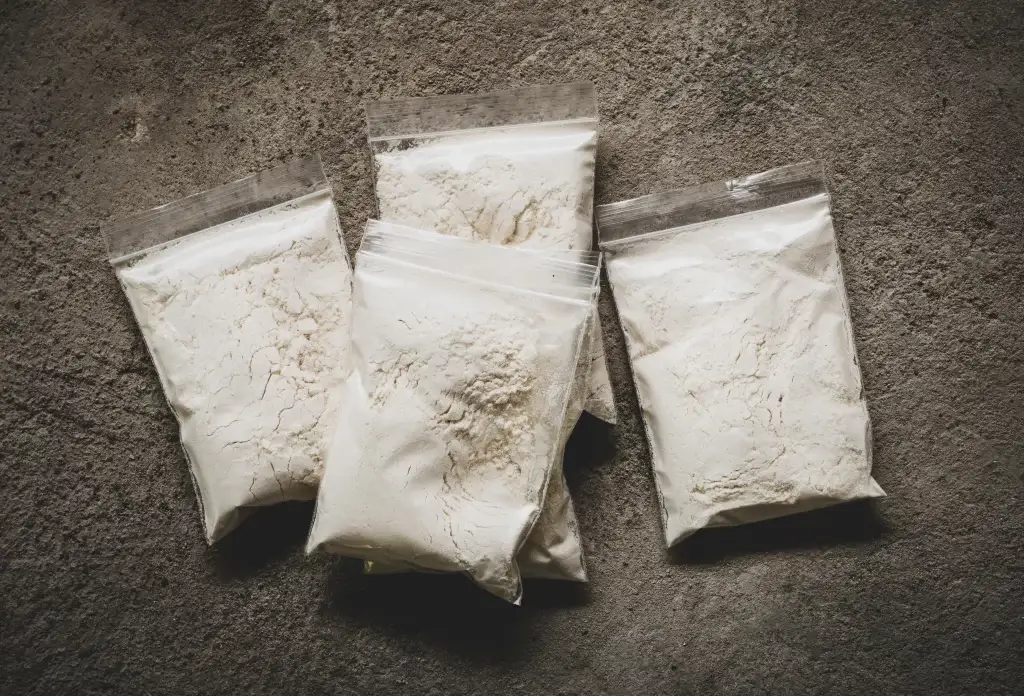Am I dating a heroin addict? It can sometimes be difficult to tell the difference between a bad mood and someone who is suffering from an addiction. If you have reason to think your partner is abusing heroin, at what point should you intervene? It is crucial to be able to identify the signs and behaviors associated with heroin use, particularly since the risk of an overdose has increased with the addition of fentanyl.
Continue reading to learn more about the signs of heroin addiction, what you can do to help, and what you should avoid doing at all costs. And remember, you are not alone.
What is Heroin?
Heroin is a powerfully addictive opioid derived from morphine, which is produced from the seed pod of the Asian opium poppy plant. It is usually taken recreationally to experience its euphoric effects and can be consumed by injection, inhalation, or smoking. Once it reaches the brain, it quickly reverts to morphine and binds to opioid receptors, generating a feeling of pleasure and making people dependent. Heroin is an illegal and dangerous drug, and misuse can result in overdose and fatality.

What Does Heroin Look Like?
Heroin usually is either a white or brownish powder or a gooey blackish material called “black tar heroin.” It could also appear as a solid or jelly-like matter. The look of the drug may vary depending on the way it was manufactured and the substances it was mixed with.
What Does Heroin Smell Like?
In regards to the aroma, pure heroin has a delicate odor, however, it can also be blended with other ingredients that possess a stronger scent. Some people have compared the scent of heroin to vinegar or rubbing alcohol. Others have stated that it has a sweet, fruity, or musky odor. It is noteworthy that the way in which heroin is consumed can also affect its smell. For instance, smoking or vaporizing will likely give off a different smell than injecting or snorting the drug.
Signs of Heroin Addiction
When someone is addicted to heroin, the physical and behavioral changes that occur can be quite frightening. Signs that a person close to you is dealing with a heroin addiction include:
Physical Signs
Heroin is a potent opioid substance that produces physical effects, including fatigue, narrowed pupils, dry mouth, a feeling of heaviness in the arms and legs, shallow breathing, and decreased heart rate. Other physical signs include track marks, significant weight loss or gain, lack of personal hygiene, and appearing pale or gray in color.
Behavioral Signs
Someone having difficulties with a heroin addiction might demonstrate alterations in their conduct, such as a lack of enthusiasm for activities they used to enjoy, disregarding responsibilities or obligations, and a heightened focus on getting and using heroin. They will also frequently isolate themselves in order to use heroin secretly. When approached about the issue, the user will likely deny it and become defensive and possibly aggressive.

Psychological Signs
Psychological signs include an intense urge to take heroin, even when they are conscious of the unfavorable outcomes of their substance consumption. Abusing heroin can result in a lack of enthusiasm, making it hard for someone to follow through on their tasks. The person may also deny that they have difficulty with heroin or that their drug intake is creating issues in their life. Depression is also a very common psychological sign of heroin addiction which also makes quitting heroin difficult.
What You Can Do To Help a Heroin Addict
Fortunately, there are ways to help your partner put an end to their heroin addiction. However, it is essential to note that being supportive of a person dear to you does not mean tolerating their addiction. You can be firm in your beliefs while still offering the aid your loved one requires and inspiring them to seek help. Displaying to them that you care and that you will do whatever possible to help them in their battle against heroin addiction will help build their trust in your relationship. The following are some ways you can help them:
Encourage Them to Get Help
Substance abuse is a complex and ongoing challenge that cannot be dealt with without expert assistance. Encouraging your partner to get professional help from a certified addiction treatment provider is important in order to aid them in understanding the deeper issues behind their addiction and finding ways to manage their cravings. Seeking out professional help not only increases the chances of successful recovery, but also provides invaluable support to those struggling with substance abuse.
Support Their Recovery Efforts
Supporting your partner’s recovery efforts is not just crucial to their sobriety, but also a great show of love and support. You can do this by offering emotional and physical assistance, being understanding and patient, and showing kindness. You can help them locate resources in the community or online, such as support groups and addiction specialists, that will enable them to focus on long-term recovery. Additionally, encourage them to stay committed to their treatment plan by providing positive reinforcement throughout the process
Educate Yourself on Addiction
To be an effective source of support for those struggling with addiction and recovery, it is important to educate yourself on addiction. Taking the time to learn about the types of addiction, their causes, and available treatment options can provide insight into what the person may be experiencing and how best to support them. Additionally, understanding the process of recovery can help you better acknowledge and recognize positive steps in their journey toward sobriety.

Help Them Avoid Triggers
It is important to assist people in creating an individualized plan to avoid triggers that can lead to drug cravings. Triggers can vary from person to person, so it is crucial to identify the specific triggers that could affect the individual in recovery. It can be helpful to create strategies such as avoiding certain locations and activities, learning how to manage stress, and connecting with support networks. By helping them create a plan to avoid triggers, we can increase their chances of successful recovery and long-term sobriety.
What You Should Not Do For a Heroin Addict
Supporting a partner who is struggling with a heroin addiction can be emotionally taxing, and it is understandable to want to assist in any way possible. Yet, it is essential to be mindful when interacting and to abstain from certain actions that may have unintended repercussions. Here are some behaviors that should be avoided when attempting to support someone battling heroin addiction:
Do Not Enable The Addiction
It may be difficult to resist the urge to shield your partner from the effects of their addiction, yet this could make the situation even more serious. By shielding them or furnishing them with the means to keep up their addiction, you are permitting their addiction and inhibiting them from confronting the entire outcomes of their conduct.
Do Not Force Them Into Rehab
If a loved one is suffering from addiction, it is important to remember that recovery must be a voluntary process. Do not force them into rehab or recovery as this could worsen the situation. It is important to provide support and understanding and to help your loved one recognize their problem and work towards finding an appropriate solution for their particular circumstances. Do not forget that forcing your loved one into rehab will not solve the issue; instead, it is important to encourage them to take responsibility for their actions and work towards a meaningful recovery in a safe and supportive environment.
Do Not Ignore the Problem
Facing the issue of addiction and discussing it with your loved one can be daunting, but it is the only way to get them the help they need. Do not ignore your partner’s addiction and try to manage it alone. Reach out for support from family, friends, or local organizations that specialize in addiction treatment. It is necessary to create a safe space in which your loved one can honestly discuss their addiction and work together to find a suitable solution.
Do Not Blame Yourself
It’s easy to blame yourself for your partner’s addiction, but it’s important to remember that there is no one single cause of addiction. It is the result of a complex combination of biological and environmental factors. Taking care of yourself and seeking out support such as therapy and support groups can help you care for not just your loved one, but for yourself as well. Doing so will allow you to be better equipped to help your partner deal with addiction in a more effective way.
Heroin Addiction Treatment in Los Angeles, CA
If you or a person you care about requires assistance with a heroin addiction, Launch Centers in Los Angeles can help. Our team is committed to aiding those struggling with substance abuse, empowering them to become their best selves and make the most of their lives. Our program is distinct, combining health care and treatment with educational and vocational elements for a complete approach to getting sober and prepared for life without drugs.
If you need assistance and want to know more about our various services and treatment programs, contact a specialist from Launch Centers today. With Launch Centers, recovery is within reach.





